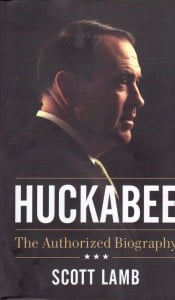 Former First Lady Betty Ford died this week of natural causes, at the age of 93. One can offer many tributes for this outspoken activist who gave voice to important causes such as breast cancer prevention (she had a mastectomy in 1974) and alcohol and drug addiction (she struggled with alcoholism and was a catalyst in advancing addiction treatment through the Betty Ford Center).
Former First Lady Betty Ford died this week of natural causes, at the age of 93. One can offer many tributes for this outspoken activist who gave voice to important causes such as breast cancer prevention (she had a mastectomy in 1974) and alcohol and drug addiction (she struggled with alcoholism and was a catalyst in advancing addiction treatment through the Betty Ford Center).
She was a dancer and a divorcee. She was a prominent force in the Women’s Movement in the 1970s, joining forces with ’70s feminists including Betty Friedan, Gloria Steinem, Bella Abzug and Eleanor Smeal. And as wife of President Gerald Ford, she had a political platform which extended far beyond that enjoyed by any other female of the time.
History will remember Betty Ford as a devoted mother, a gentle woman who decried the use of physical punishment in the raising of children. I remember the First Lady’s warmth and graciousness, evident in television interviews during and after the Ford presidency. But juxtaposed against her tender love and compassion for her own children, a startling counterpoint, is her passionate support for abortion of other people’s children.
I’ve tried to understand how this kind and gentle woman could have so ignored the human rights of the unborn, and I can only conclude that for her (and for many who, for whatever reason, have not thought through the issue) there were two forces at play:
- She knew not what she was doing. Remember that Roe v. Wade was only made the law of the land in 1973; before that, abortion was illegal in all but a few states. I recall that in those early years, the pro-life movement—stunned by the unexpected passage of massive pro-abortion legislation—was just gaining steam. Pictures of aborted fetuses were not yet commonplace; I don’t think fetal pain studies had been published. In fact, although some forward thinkers did understand and lobby against the taking of innocent human life, many of us just hadn’t heard the arguments and hadn’t formed our conscience on this newest societal issue. I, as a young woman during those years, remember a female gynecologist asking me in a matter-of-fact sort of way, upon confirming my first pregnancy, “what I wanted to do.” She meant, did I want to give birth or to abort? Praise God Who, in His great mercy, spared me from choosing the latter.
- She saw injustice and sought to overcome it. While the pain of the fetus during, say, a dilation and curretage abortion was invisible to all but the abortionist himself, Ford could easily identify with the pain of women who, through no fault of their own, faced discrimination in the workplace and in society at large. In the face of flagrant violations of women’s inherent rights and dignity, Betty supported the proposed Equal Rights Amendment and lobbied state legislatures to ratify the amendment. She was unapologetically pro-abortion, believing that unwanted pregnancies ranked high among the causes of women’s marginalization in the world of business and civic affairs. She didn’t see, and so didn’t consider, the tiny women who struggled as they were torn from their mothers’ wombs.
Betty Ford is gone, and in heaven she will doubtless meet many of the souls whose lives were extinguished because of social policies which she fostered. If she didn’t understand that these were people back in 1970, she knows it now.
May God have mercy on her soul, and may He welcome her into the heavenly community where, with the angels and saints, she will forever praise the Father, Son and Holy Spirit.











